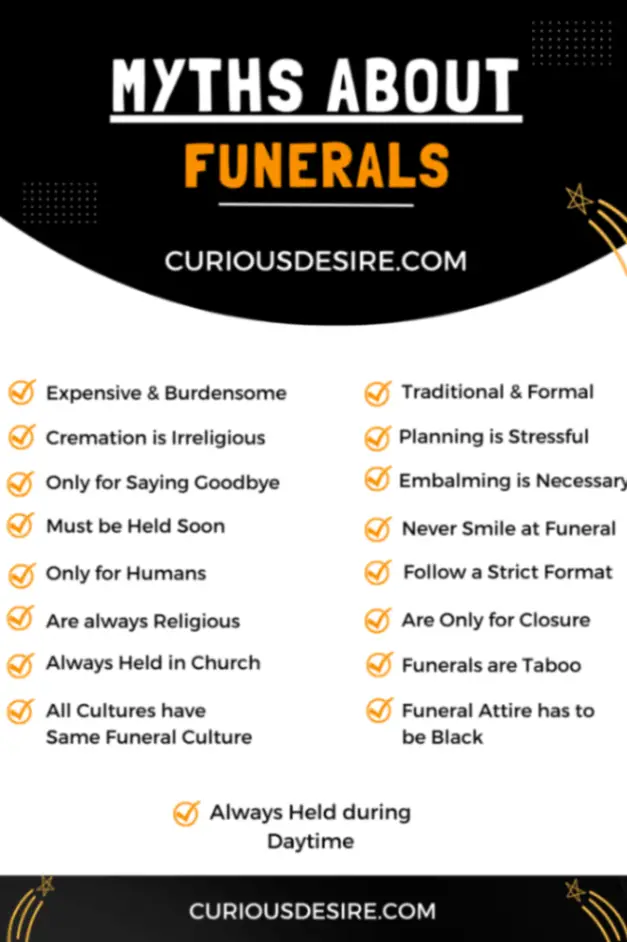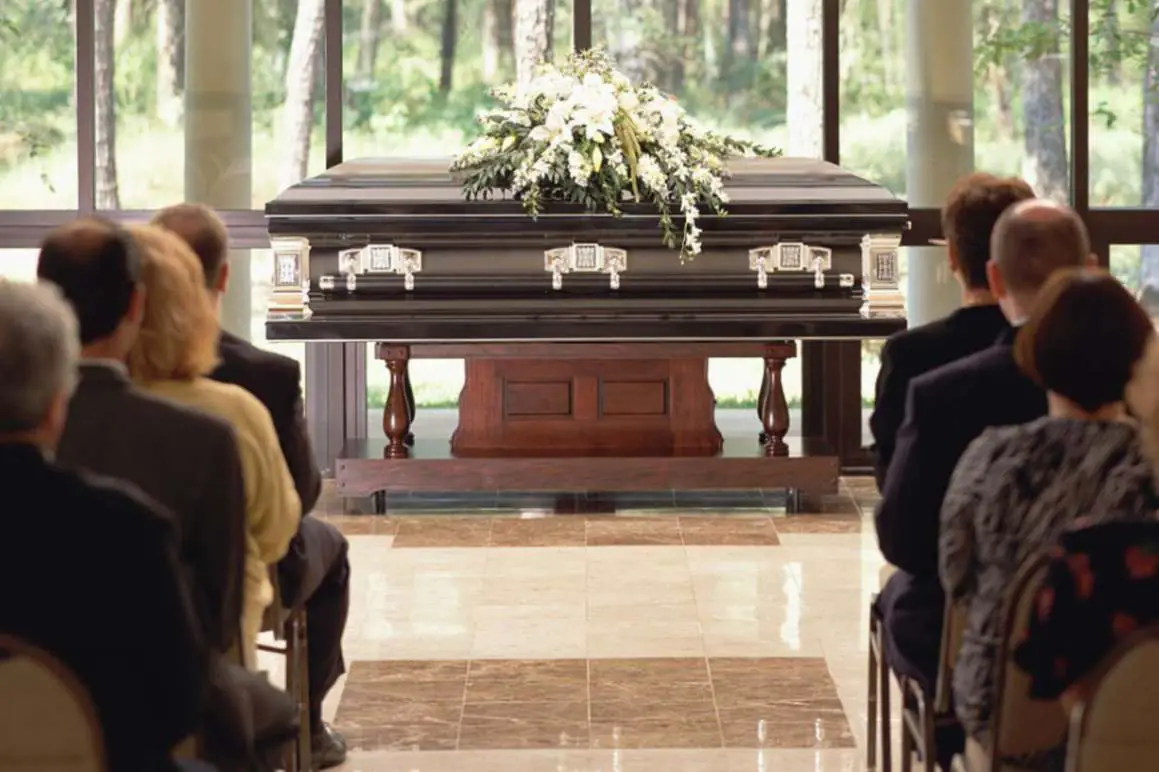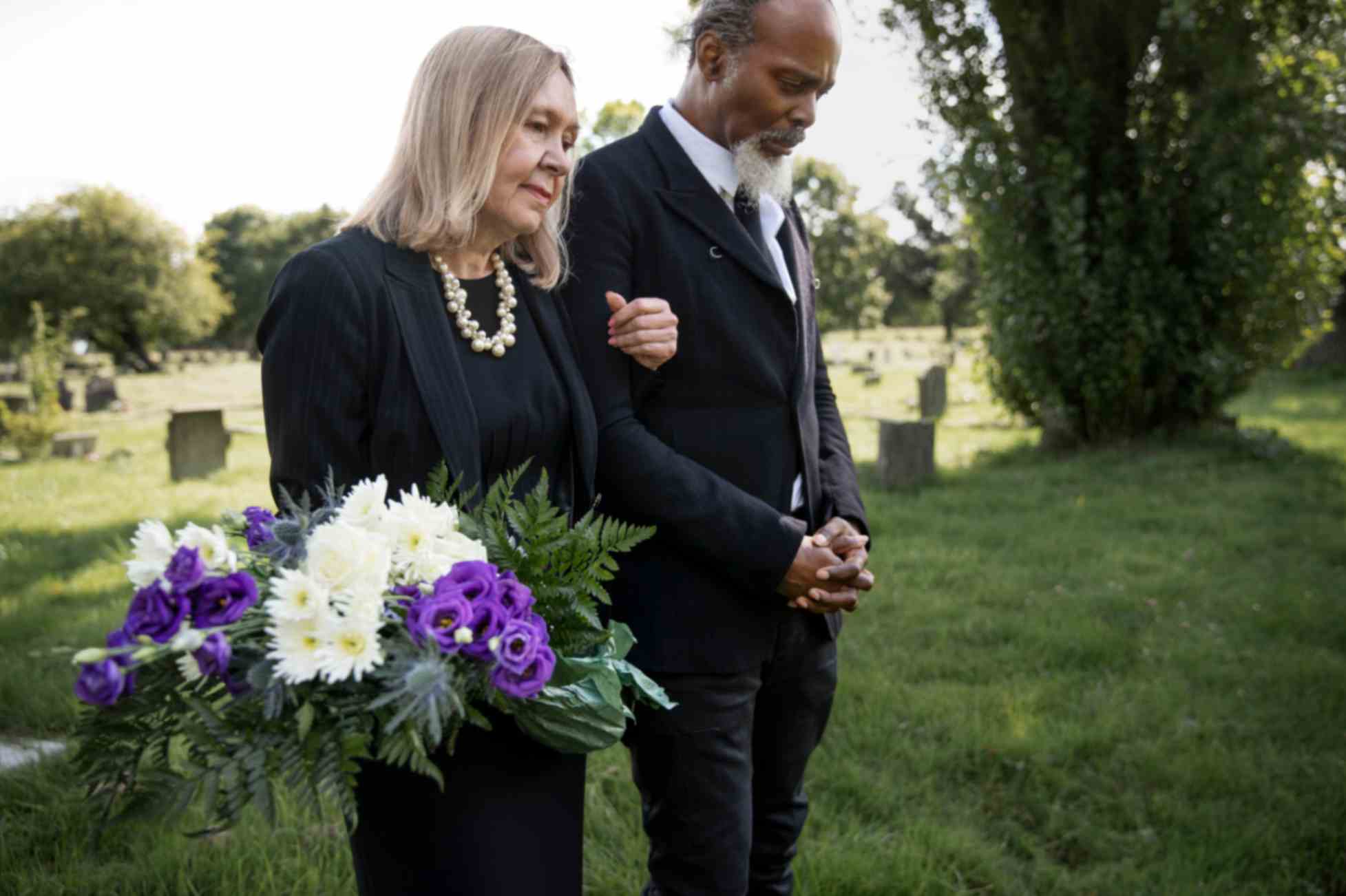Feeling lost when it comes to funerals? We’ll enlighten you on this uncomfortable subject and equip you with the knowledge and confidence to plan a funeral.
Funerals are a significant part of our culture and play a crucial role in helping individuals cope with loss and honor the departed.
However, there are several myths and misconceptions surrounding funerals that can create unnecessary anxiety or confusion.
Let’s debunk some of the most common myths surrounding funerals and shed light on the truth behind them.
5 most common myths about funerals:
- Funerals are Only for Saying Goodbye
- Funerals are Expensive and Financially Burdensome
- Funerals Must Be Traditional and Formal
- Funerals Are Always Held in a Church
- Embalming Is Necessary for All Funerals

Myth 1: Funerals are Expensive and Financially Burdensome
One of the most pervasive myths about funerals is that they are prohibitively expensive and can leave families in financial distress.
While it is true that funerals can be costly, there are many affordable options available to suit different budgets.
From direct cremation to green burials, some choices can help you honor your loved ones without breaking the bank.
Many funeral homes offer payment plans or financial assistance options for families in need.
It’s essential to communicate openly with the funeral director about your budget and explore all the available alternatives before making any decisions.
Myth 2: Funerals Must Be Traditional and Formal
Another common myth is that funerals must adhere to traditional customs and be unhappy and formal.
In reality, funerals can be personalized to reflect the unique life and personality of the deceased.
From themed funerals to celebrations of life, there are endless ways to create a meaningful and memorable service.
Moreover, it’s essential to remember that there are no strict rules governing funerals.
Families should feel empowered to plan a service that feels authentic and honors their loved ones in a way that feels right to them.
Myth 3: Cremation is Irreligious or Disrespectful
Some people believe that cremation goes against religious teachings or is disrespectful to the deceased.
However, cremation is a common and culturally accepted practice in many religions and societies around the world.
It is a personal choice that should be made based on your beliefs and preferences.
Cremation can also offer environmental benefits compared to traditional burials, such as reducing land use and resource consumption.
Ultimately, the decision to cremate should be guided by what feels right for the deceased and their loved ones.
Myth 4: Planning a Funeral is Overwhelming and Stressful
The thought of planning a funeral can be daunting, especially when grieving the loss of a loved one.
However, many funeral homes offer support and guidance to help you navigate the planning process with ease.
Funeral directors are trained professionals who can assist with everything from selecting a casket to coordinating the service and handling paperwork.
It’s important to lean on the expertise of the funeral home staff and communicate your needs and preferences openly.
Remember, you are not alone, and there are resources available to help you create a meaningful and respectful tribute to your loved one.
Myth 5: Funerals are Only for Saying Goodbye
While funerals are a time to say goodbye to the deceased, they also serve as an opportunity for healing and community support.
Funerals provide a space for family and friends to come together, share memories, and find comfort in each other’s company.
Funerals can help you process your grief and begin the journey toward acceptance and healing.
By acknowledging the loss and honoring the life of the deceased, funerals can play a crucial role in the grieving process.

Myth 6: Embalming Is Necessary for All Funerals
Embalming is often seen as a way to preserve the body for viewing purposes, particularly if there’s an extended period between death and burial or if there are concerns about decomposition.
However, it’s essential to understand that embalming is not legally required in most cases.
You have the right to choose whether or not to embalm based on your personal or religious beliefs, as well as practical considerations.
Many opt for alternatives like refrigeration, which can achieve similar results without embalming chemicals.
Immediate burial or cremation without embalming is a viable option for those who prefer a simpler and more environmentally friendly approach.
Myth 7: Funerals Must Be Held Within a Few Days of Death
While some cultures or religions have customs that advocate for prompt burial or cremation, there’s no universal rule mandating a specific timeline for funerals.
You have the authority to plan the funeral according to your preferences and circumstances.
This flexibility allows you to consider the following factors that may influence the timing of the funeral:
- The availability of loved ones
- The need for additional time to make arrangements
- Cultural practices
By choosing a date that works best for everyone involved, you can ensure that the funeral is a meaningful and inclusive tribute to the deceased.
Myth 8: You Should Never Smile or Laugh at a Funeral
Funerals are emotional gatherings where feelings of sorrow and grief are often prevalent.
However, they are also opportunities to celebrate the life, achievements, and cherished memories of the person who has passed away.
Laughter and smiles can be natural expressions of joy and remembrance when sharing anecdotes or stories that highlight the unique personality and sense of humor of the deceased.
These moments of fun can help lighten the atmosphere and provide comfort to mourners by cultivating a sense of connection and camaraderie.
It’s essential to respect the grieving process of others while also allowing space for lightheartedness and fond reminiscences.
Myth 9: Funerals Are Only for Humans
While human funerals are the most widely recognized, many pet owners view their animals as beloved families and choose to honor their passing with funeral or memorial services.
These ceremonies provide an opportunity for pet owners to express their love, gratitude, and sorrow while commemorating the companionship and unconditional affection shared with their pets.
Pet funerals can be as elaborate or simple as desired, with rituals that reflect the unique bond between pet and owner.
By acknowledging the significance of their pet’s life and offering a formal farewell, pet owners can find comfort and closure in the grieving process, just as they would with human loved ones.
Myth 10: Funerals Must Follow a Strict Format
There’s no rigid rule dictating how a funeral must be conducted.
Funerals can vary widely, incorporating elements such as religious rituals, eulogies, music, readings, or personal tributes.
You have the freedom to customize the funeral according to the wishes of the deceased and the preferences of those in attendance.
Whether it’s a formal religious service or a more informal celebration of life, the focus should be on honoring the memory of the deceased and providing comfort to mourners.
Myth 11: Funerals Are Always Religious
While religious ceremonies are common, funerals can also be secular or non-religious.
Many people choose to incorporate elements of their faith into the funeral proceedings, but others may prefer a more secular approach that focuses on celebrating the life and legacy of the deceased without religious overtones.
Individuals who identify with multiple faiths or no specific religion may opt for a customized ceremony that reflects their beliefs and values.
The key is to create a meaningful and respectful tribute that resonates with the deceased and their loved ones.
Myth 12: You Shouldn’t Talk About Funerals With Children
While discussing death and funerals with children can be challenging, it’s essential, to be honest and age-appropriate in addressing their questions and concerns.
Shielding children from discussions about death can lead to confusion or anxiety, as they may sense that something significant is happening but not fully understand what it entails.
By providing gentle and factual explanations, parents and caregivers can help children comprehend the concept of death and healthily navigate their feelings of grief.
Involving children in age-appropriate aspects of the funeral process, such as attending the service or creating memorial activities, can also help them feel included and supported during this difficult time.
Myth 13: Funerals Are for Closure
Grief is a complex and ongoing process that unfolds differently for each person, and closure may not be immediate or achievable through a single event.
Funerals serve multiple functions, including honoring the memory of the deceased, providing support to mourners, and facilitating the expression of emotions.
They can also mark the beginning of the grieving process, offering an opportunity to come together to mourn, remember, and find comfort in each other’s company.
Ultimately, closure is a personal and subjective experience that may develop over time as you continue to process your loss and adjust to life without your loved one.

Myth 14: Funerals Are Always Held in a Church
While traditional funeral services may often take place in a church, they can be held in various locations.
Many funeral homes have dedicated spaces for services, and families can also choose to hold the funeral at other venues such as community centers, outdoor settings, or even the deceased’s home.
The location of the funeral depends on the preferences of the family and may be influenced by religious, cultural, or logistical considerations.
Ultimately, the goal is to create a meaningful and respectful tribute that reflects the life and wishes of the deceased.
Myth 15: Funerals Are a One-Size-Fits-All Event
Funerals are highly customizable and can be tailored to reflect the personality, beliefs, and preferences of the deceased and their loved ones.
There is no single correct way to conduct a funeral, and families have the flexibility to incorporate elements that are meaningful to them.
Whether it’s a traditional religious service, a contemporary celebration of life, or a personalized theme reflecting the deceased’s interests, the funeral should be a reflection of the individual being honored.
By embracing diversity and creativity, families can create a funeral that truly honors the unique life and legacy of their loved one.
Myth 16: Funerals Are Forgotten Quickly
Funerals play a significant role in the grieving process and are remembered by those who attend for years to come.
They provide an opportunity for family and friends to come together, offer support, and share memories of the deceased.
The rituals and traditions observed during the funeral can leave a lasting impact on mourners, helping them find comfort and closure as they navigate their grief.
The memories and reflections shared during the funeral can become cherished reminders of the love and connection shared with the deceased, ensuring are not forgotten but honored and remembered long after the event.
Myth 17: Funerals are Taboo
While discussions about death and funerals can be uncomfortable for some people, they are a natural and essential part of life.
Funerals honor the deceased, support the bereaved, and find meaning in the face of loss.
By openly acknowledging death and embracing the funeral ritual, individuals and communities can better cope with grief and celebrate the lives of those who have passed away.
Breaking the taboo surrounding funerals allows for more honest and compassionate conversations about death, helping to reduce stigma and promote greater understanding and acceptance of this universal experience.
Myth 18: All Cultures Have Similar Funeral Customs and Traditions
Funeral customs and traditions vary significantly across cultures, religions, and regions.
For example, in some cultures, cremation is the preferred method of disposition, while in others, burial is the norm.
Some cultures have elaborate funeral processions and ceremonies, while others may have simpler rituals.
Understanding and respecting these diverse practices is important for acknowledging and honoring the beliefs and traditions of different communities.
Myth 19: Funeral Attire Has to Be Black
While black attire is commonly associated with mourning in many Western cultures, it’s not a universal requirement for funerals.
People may wear black out of tradition or personal preference, but it’s not mandatory. In some cultures, white or other subdued colors may be more appropriate for funerals.
The key is to dress respectfully and modestly that honor the solemnity of the occasion, regardless of the specific color of attire.
Myth 20: Funerals Are Always Held During the Daytime
While daytime funerals are indeed common, they are not the only option.
Funerals can be scheduled at any time of the day or night, depending on various factors such as cultural traditions, religious practices, and logistical considerations.
Some families may opt for evening or nighttime funerals to accommodate the schedules of distant relatives who need to travel or to align with specific religious observances or customs.
Ultimately, the timing of a funeral is a personal decision made by the family or the deceased’s wishes, and it can vary widely based on your preferences and circumstances.
Source: Vinny Commons YT Channel
Conclusion
Funerals are a poignant reminder of our shared humanity, transcending cultural boundaries and connecting us in our collective grief.
By debunking these myths and embracing the diversity of funeral customs and practices, we can create meaningful and personalized tributes that honor the lives of our loved ones respectfully and authentically.
May we cherish the truths that endure, guiding us with compassion and empathy on our journey through life and death.
Myths About Funerals FAQs
1. Do funerals have to follow traditional, somber formats?
Funerals can be tailored to reflect the individuality of the deceased and their family, ranging from traditional services to more personalized ceremonies that celebrate life.
2. Is pre-planning a funeral considered morbid?
Pre-planning a funeral can be a thoughtful and practical decision, relieving loved ones of the burden and ensuring one’s wishes are honored.
3. Are funerals only for adults?
Funerals are for people of all ages, providing support and closure for family members, friends, and even children.
4. What distinguishes a funeral from a memorial service?
Funerals typically involve the presence of the body, while memorial services may not, but both serve to honor and remember the deceased.
5. Is it inappropriate to find moments of joy at a funeral?
Funerals often include laughter and fond memories alongside sorrow, as they celebrate the life and legacy of the deceased.
6. Does embalming permanently preserve the body?
Embalming temporarily delays decomposition for viewing purposes but does not halt the natural process of decay over time.